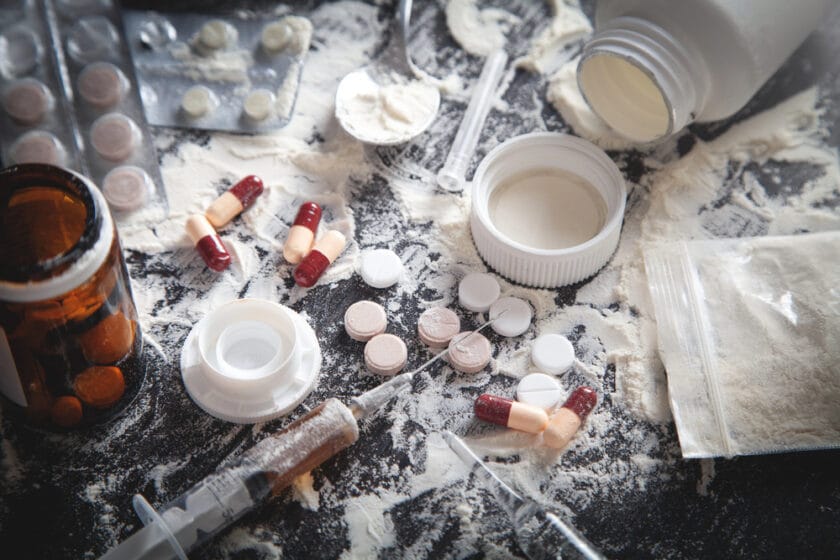Understanding Relapse and the Steps Towards Recovery
During this time of the year, many people will make resolutions to change some aspect of their behaviour in which they might have concerns. We may resolve to exercise more, eat less cake or chocolate, stop smoking, leave a bad relationship, stop gambling, or reduce or stop drinking or using other drugs.
Most of us find it relatively easy to make these resolutions for change, though keeping these intentions tends to be more difficult. As author Mark Twain reportedly stated, “Giving up smoking is the easiest thing in the world. I know because I’ve done it thousands of times.”
Learning effective strategies for coping can significantly aid in maintaining these resolutions.
Making resolutions to change is a normal human behaviour. Breaking these resolutions is also a common aspect of behaviour change. Resolution breakdown, or relapse, is therefore not a unique behaviour peculiar to people affected by alcohol and other drug (AOD) use, but rather a feature of all human behaviour.
It is important to understand the factors and processes involved in resolution breakdowns and relapse triggers that can lead back to problematic AOD use. Learning coping strategies is crucial for understanding and preventing relapse, as it helps individuals remain aware of triggers and enhance their confidence in maintaining sobriety. Relapse rates in drug abuse scenarios are notably high, and many individuals face significant challenges in maintaining sobriety.
The language used to describe resolution breakdown can appear pejorative. Words like ‘lapse’ and ‘relapse’ can invoke feelings of weakness, failure, self-blame and shame. Consumers may feel reluctant to raise these issues for fear of being judged.
However, this can often make it worse, as avoiding these discussions may prevent individuals from accessing the support they need to move forward. By reaching out and speaking about our struggles, we can help normalise the challenges of maintaining progress and create a safe space for open and honest conversations about setbacks, thereby fostering a more constructive path towards growth and resilience.
What Is a Lapse?
Lapse Meaning: A lapse refers to a one-time or short-term return to alcohol or other drugs, whereas a relapse signifies a return to previous levels of substance use. In the AOD field, it has been estimated that up to 90% of individuals will have at least one drink or one occasion of other drug use within the first year of abstaining from AOD use.
A lapse does not necessarily lead to continued AOD use, i.e. a relapse. Developing a relapse prevention plan can help individuals manage lapses and prevent them from escalating into full relapses.
What Is a Relapse?
Relapse Meaning: This is defined as a return to pre-treatment levels of AOD use. Research indicates that between 40 and 60% of consumers experience relapse, meaning you are not alone in this struggle. Providing drug and alcohol information and resources is crucial to educate on the risks and responsibilities associated with substance use.
Relapse is not a failure, a weakness or a personality trait, and it is not just unique to AOD use. Recovery from AOD problems takes time, and lapses and relapses are common along the recovery journey.
Possible Causes of Relapse
Relapse is a complex phenomenon that can be triggered by a variety of relapse risk factors. Understanding these triggers can help in developing effective strategies to prevent relapse.
Some common causes of relapse include:
- Stress and Anxiety: High levels of stress and anxiety can lead to feelings of overwhelm, making it more challenging to maintain sobriety. When stress levels rise, the temptation to return to old habits can increase.
- Negative Emotions: Unmanaged negative emotions such as anger, sadness, and frustration can contribute to relapse. These emotions can create a sense of discomfort that individuals may try to escape through substance use.
- Social Pressures: Social pressures from friends, family, or peers can be significant triggers. If an individual is not prepared to handle these pressures, they may find it difficult to resist the urge to use alcohol or other drugs.
- Lack of Coping Skills: Inadequate coping mechanisms and strategies can make it difficult to manage stress and negative emotions. Without effective coping mechanisms, the risk of relapse increases.
- Trauma: Unaddressed trauma can be a significant factor in relapse. Individuals who have experienced trauma may turn to substance use as a way to cope with their pain, especially if they are not receiving adequate support and treatment.
- Mental Health Conditions: Co-occurring mental health conditions such as depression, anxiety, and post-traumatic stress disorder (PTSD) can increase the risk of relapse. These conditions can exacerbate feelings of distress and make it more challenging to maintain sobriety.
Relapse Prevention Strategies
Implementing coping strategies is crucial for enhancing confidence and preventing relapse.
Relapse prevention programs are designed to provide structured support and strategies to help individuals maintain sobriety.
By implementing these strategies, individuals can build resilience and reduce the risk of returning to substance use. Some effective strategies you can do include:
- Learning Coping Skills: Developing healthy coping skills and strategies is crucial for managing stress and negative emotions. Techniques such as deep breathing, mindfulness, and problem-solving can help individuals navigate challenging situations without resorting to substance use.
- Building a Support Network: Surrounding oneself with a supportive network of friends, family, and peer support can provide a sense of belonging and reduce the risk of relapse. A strong support system can offer encouragement, accountability, and a safe space to share struggles and successes.
- Practising Self-Care: Regular self-care activities such as exercise, meditation, and mindfulness can help reduce stress and promote overall well-being. Prioritising your mental wellbeing can enhance emotional resilience and provide a healthy outlet for managing life’s challenges.
- Attending Therapy Sessions: Regular therapy sessions such as AOD counselling can provide individuals with a safe and supportive environment to discuss challenges and develop strategies for relapse prevention. Therapy can help address underlying issues, build coping mechanisms, and reinforce commitment to recovery.
- Participating in Support Groups: Joining a support group can provide individuals with a sense of community and connection. Support groups offer a space to share experiences, gain insights, and receive encouragement from others who understand the recovery journey. This sense of community can reduce feelings of isolation and increase the likelihood of long-term sobriety.
By understanding the causes of relapse and implementing effective prevention strategies, individuals can enhance their resilience and continue on the path to recovery.
Remember, relapse is not a failure but an opportunity to learn and grow stronger in your commitment to a healthier, substance-free life.
What Can You Expect From Counselling at Holyoake?
Counsellors at Holyoake understand that there are a number of factors that lead to a lapse or a relapse. Treatment options such as detoxification, inpatient and outpatient programs, and behavioural therapies can help individuals regain control and reduce the chances of future relapses.
Our dedicated counsellors will work with you to develop strategies for relapse management to help you get back on track towards your goal of recovery. In the first instance, counsellors will raise the issue of relapse even before it has happened. This does not mean that they are suggesting you will lapse or relapse.
In the workplace, we have regular fire drills. This does not mean there will be a fire, but these drills ensure that everyone knows what to do in the event of a fire. Relapse prevention adopts a similar approach.
Relapse is often seen as an opportunity to learn what factors may have contributed to your initial lapse. How robust was your initial decision to change? Were there insufficient benefits of changing your behaviour? What were the internal and external factors that challenged your decision, e.g. feeling down or depressed, being influenced by friends and relatives, attending high-risk social situations?
Holyoake counsellors will help you identify high-risk situations where you might find it challenging to maintain your resolutions or resist AOD use. These high-risk situations are not only places or events, but they may include how you feel. You will be encouraged in the first instance to learn how to avoid high-risk situations or to develop strategies to better manage these situations.
Counsellors will encourage you to discuss what a lapse means to you and explore whether you are experiencing feelings of failure, shame or self-blame and the extent to which you remain committed to change. They will work together with you to address any ambivalence you have and enhance your commitment to change. Motivational interviewing will be used to strengthen and improve your commitment to change.
Coping skills such as problem-solving may be helpful in managing identified high-risk situations. If you are more likely to use when you are feeling angry, depressed or stressed, counsellors will work with you on relaxation strategies and challenge any unhelpful thinking you may have.
Setting short-term, realistic, and achievable goals will be encouraged rather than possibly unrealistic goals such as “I will never drink again.”
Overcoming Relapse and Achieving Long-Term Recovery
Achieving long-term recovery and overcoming relapse involves a combination of strategies and support. Here are some practical tips to help:
- Learn Strategies for Coping: Developing healthy coping mechanisms, such as exercise, meditation, and journaling, can help manage stress and cravings effectively.
- Seek Support: Connecting with a support group or therapist provides a safe environment to share experiences and receive encouragement.
- Practice Self-Care: Engaging in self-care activities, such as getting enough sleep, eating a balanced diet, and participating in enjoyable activities, can help manage stress and maintain overall well-being.
- Stay Connected: Building and maintaining a support network of friends and family can provide motivation and accountability in the recovery journey.
- Be Patient: Recovery is a continuous process, and it’s important to be patient and compassionate with oneself. Relapse is a common part of recovery and should be viewed as an opportunity to learn and grow stronger, rather than a failure.
Relapse support systems, including counselling, support groups, and other treatment options, play a crucial role in helping individuals navigate the challenges of recovery.
By incorporating these strategies, taking care of yourself, and seeking the necessary support, individuals can navigate the challenges of relapse and work towards achieving long-term recovery.
The Team at Holyoake Is Here to Help
At Holyoake, we acknowledge that relapse is common and not unique to alcohol and other drug use. We understand that lapses and relapses can be overcome as you move towards recovery.
We will work alongside you to help you maintain your positive changes through relapse intervention and stay focused on your goals. The focus will be on the quality of your life after you have made these changes.
Explore our services to learn more about how we can help you. Contact us today to get started.
Frequently Asked Questions
Relapse Definition: Relapse is a return to previous behaviours or patterns of substance use, such as alcohol or drug use, after a period of abstinence. It is a common part of the recovery journey and does not equal failure.
Alcoholic relapse is the return to drinking alcohol after a period of sobriety. It is often influenced by triggers like social pressures, stress, or emotional challenges, but it can be managed with the right support and strategies.
A lapse is a short-term or one-time use of drugs or alcohol, while relapse involves a return to regular substance use, such as a relapse to alcohol abuse. Understanding the distinction can help individuals address lapses before they escalate into relapses.
Relapse is common because recovery is a complex process that involves changing behaviours and coping mechanisms. Factors like stress, negative emotions, and lack of support can make maintaining sobriety challenging.
To prevent relapse in addiction, focus on developing coping skills, building a support network, practising self-care, and participating in therapy or support groups. These strategies can help manage triggers and reduce the risk of relapse.
Common causes include stress, unmanaged negative emotions, social pressures, trauma, and co-occurring mental health issues. Identifying and addressing these factors is crucial in preventing relapse.
Holyoake provides comprehensive support, including counselling, relapse prevention planning, and strategies to address triggers and rebuild commitment to recovery. Our team works with you to overcome challenges and maintain progress.
No, not at all. Relapse is not a failure; it is a normal part of the recovery process and can be an opportunity to learn from setbacks. By seeking support, individuals can strengthen their resilience and continue their recovery journey.
After a relapse, reach out for support from professionals, friends, or support groups. Reflect on the factors that led to the relapse, adjust your strategies, and recommit to your recovery goals.
For more information or support, contact Holyoake today. Our team is here to help you navigate relapse and work towards a healthier, substance-free future.
References
Allsop, S. (2009). Relapse. In S. Helfgott & S. Allsop (Eds) Helping change: The drug and alcohol counsellors training program. Perth. WA. Drug and Alcohol Office.
Stone, J., Marsh, A., Dale, A., Willis, L., O’Toole, S., Helfgott, S., Bennetts, A., Cleary, L., Ditchburn, S., Jacobson, H., Rea, R., Aitken, D., Lowery, M., Oh, G., Stark, R., & Stevens, C. (2019). Counselling Guidelines: Alcohol and other drug issues (4th ed.). Perth, Western Australia: Mental Health Commission.







